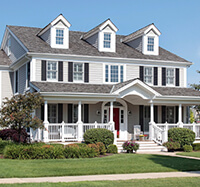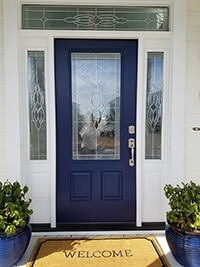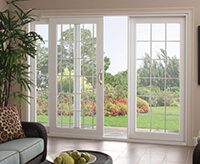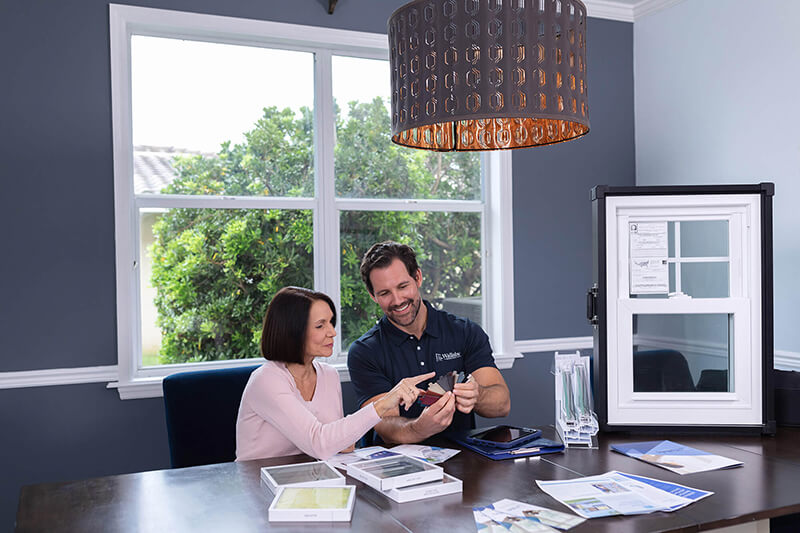
Window Replacement FAQ
Have you noticed a persistent chill while sitting near the windows in your home, despite the heating being on? If so, you might be contemplating ways to address this issue. One effective solution is to consider replacing your windows. This not only enhances the overall comfort of your space but also boosts energy efficiency, ultimately reducing unnecessary energy expenses associated with inefficient windows. If you're unfamiliar with the process of window replacement or haven't undertaken it recently, we're here to assist. All the information you need to begin the upgrade is conveniently compiled here, providing answers to any questions you may have.
What is the average cost to replace windows?
The average cost to replace windows can vary widely depending on several factors, including the type of windows, the size of your home, the materials used, and the region where you live. As of my last knowledge update in January 2022, I can provide a general estimate, but keep in mind that prices may have changed since then.
On average, homeowners can expect to pay anywhere from $300 to $1,000 per window for standard replacement windows, not including installation costs. High-end windows or custom designs can exceed this range. Installation costs can also vary, but they often range from $150 to $300 per window.
For an overall cost estimate, it's essential to consider the number of windows you plan to replace and whether any additional features, such as energy-efficient glass or custom finishes, are included. Additionally, labor costs may vary depending on the complexity of the installation.
To get an accurate and up-to-date estimate for your specific situation, it's recommended to consult with local window replacement professionals and obtain multiple quotes. Prices can also be influenced by market conditions, demand, and any technological advancements in window materials or designs that may have occurred since my last update in January 2022.
Should I replace all the house windows at once?
Whether you should replace all the windows in your house at once depends on various factors, and there's no one-size-fits-all answer. Here are some considerations to help you make an informed decision:
-
Budget: Replacing all windows at once can be a significant upfront cost. Consider your budget and financial situation. If replacing all windows simultaneously is financially feasible, it may offer a comprehensive solution.
-
Consistency: If you care about the visual consistency of your home, replacing all windows at once ensures a uniform look. This is especially important if you have multiple types or styles of windows in your home.
-
Energy Efficiency: Upgrading all windows simultaneously allows you to maximize energy efficiency throughout your entire home. This can result in consistent temperature control and potentially reduce energy costs.
-
Convenience: Replacing all windows at once can be more convenient in terms of coordinating with contractors and minimizing disruptions to your daily life. However, it might also mean a more extended period of construction activity.
-
Phased Approach: If budget constraints are a concern, you might consider a phased approach, replacing windows in stages over time. Start with the most critical or inefficient windows and gradually replace the others as your budget allows.
-
Local Climate: Consider your local climate and weather conditions. If there are specific seasons that are more favorable for window replacement in your area, you might plan to replace all windows during those times.
-
Warranty and Compatibility: If you're considering different types or brands of windows, replacing them all at once ensures that your windows are compatible and covered under the same warranty.
Ultimately, the decision to replace all windows at once or in phases depends on your priorities, budget, and individual circumstances. If you're unsure, consulting with a professional window replacement contractor can provide valuable insights based on your specific situation. They can help you assess the condition of your current windows, discuss your goals, and provide recommendations tailored to your needs.
How to save money on replacement windows?
Replacing windows can be a significant investment, but there are several strategies to save money on replacement windows. Here are some tips:
-
Obtain Multiple Quotes:
- Seek quotes from several reputable window replacement companies. This allows you to compare prices and find the best deal.
-
Research and Compare Window Types:
- Different window materials (vinyl, wood, fiberglass) and styles have varying costs. Research the pros and cons of each type and choose one that fits your budget without compromising on quality.
-
Energy Efficiency:
- While energy-efficient windows may have a higher upfront cost, they can lead to long-term savings on energy bills. Look for windows with the ENERGY STAR label or other energy efficiency certifications.
-
Consider Standard Sizes:
- Custom-sized windows can be more expensive. If possible, choose standard window sizes to reduce manufacturing costs.
-
Timing Matters:
- Some contractors may offer discounts during their slower seasons. Consider scheduling your window replacement during these times to potentially get a better deal.
-
DIY vs. Professional Installation:
- While professional installation is recommended for a proper fit and performance, some homeowners with adequate skills may consider DIY installation to save on labor costs. However, this is not advisable for everyone, as improper installation can lead to issues.
-
Look for Rebates and Incentives:
- Check for local, state, or federal rebates, tax credits, or incentives for energy-efficient home improvements. These can significantly reduce the overall cost.
-
Bulk Discounts:
- Some companies offer discounts if you replace a large number of windows at once. Explore this option if you plan to replace multiple windows.
-
Maintain Existing Window Openings:
- If possible, keep the existing window openings without enlarging or altering them. Modifying the openings can add to the overall cost.
-
Shop During Sales:
- Keep an eye out for sales or promotions from window manufacturers or retailers. Purchasing during these periods can result in cost savings.
-
Negotiate the Price:
- Don't hesitate to negotiate with contractors. They may be willing to offer discounts, especially if you have multiple quotes and can demonstrate that you are price-conscious.
-
Reuse Window Frames:
- If your window frames are in good condition, you might be able to save money by replacing only the window sashes or glass instead of the entire unit.
Before making a decision, carefully weigh the cost savings against the long-term benefits and consider the overall value and quality of the windows you choose. It's crucial to strike a balance between saving money and ensuring that you invest in windows that meet your needs and provide long-lasting performance.




